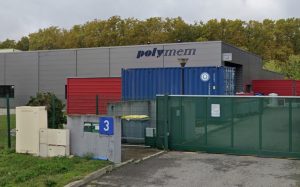Repligen Corporation has continued its M&A spree with the acquisition of hollow fiber technology firm Polymem.
The deal, once complete, will see Repligen add Toulouse, France based ultra and microfiltration tech firm Polymem to its bioprocess portfolio.
Polymem was established in 1997 by two engineers specializing in hollow fiber membrane manufacturing and has built itself up into a firm servicing numerous industries, including the biomanufacturing sector.

Image c/o Google
“The acquisition significantly expands our hollow fiber membrane and module production capabilities and adds core R&D, engineering and production expertise in hollow fiber technology for both industrial and bioprocessing markets,” Repligen CEO Tony Hunt said.
“The business complements what we have already in place at our Rancho Dominguez site and establishes a world-class center of excellence in Europe to meet the accelerating demand for hollow fiber products and to serve our rapidly expanding global customer base.”
The Rancho Dominguez, California site became part of Repligen’s network in 2017 through the $359 million acquisition of filtration firm Spectrum.
Financials of the deal have not been divulged, but Repligen says the purchase will be funded from its war chest of more than $700 million in cash on hand.
The news is the latest in a string of acquisitions by Repligen, which since 2014 has been diversifying its business beyond its traditional Protein A chromatography media offering.
In October last year, the firm boosted its single-use chromatography and filtration systems portfolio through the $200 million acquisition of ARTeSYN Biosolutions. This came off the back of the acquisitions of biopharma plastic fabrication firm Non-Metallic Solutions and Engineered Molding Technology (EMT), a maker of silicone single-use consumables and components for bioprocessing functions.
The latest buy comes as no surprise, with Hunt saying in February that Repligen “will continue to be opportunistic on M&A” in 2021 and will “focus on expanding [its] franchise footprint with differentiated technologies.”
